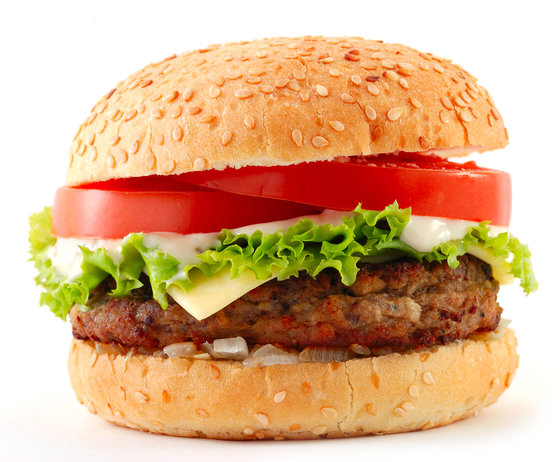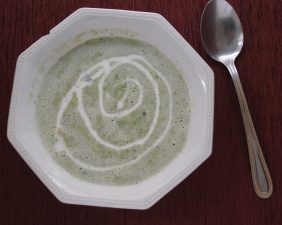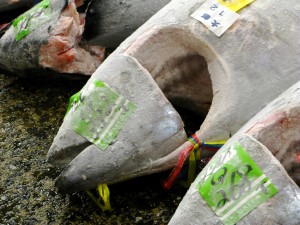 The British fast-food chain hid up to 30% horse meat in its juicy burgers, then denied it.
The British fast-food chain hid up to 30% horse meat in its juicy burgers, then denied it.
The British, most of whom regard eating horse as something like eating dogs, were rocked by the news that the burgers they loved were filled out with cheap horse meat.
Burger King’s supplier in Ireland, ABP/Silvercrest, supplied the “contaminated” meat. Tracing it back as far as possible, it seems to have originated in Poland. Frozen meat of murky origin, hauled in refrigerated trucks from country to country before being served to the public. Hardly sustainable food.
At first Burger King denied any connection with horse meat, but then did some clumsy back-pedalling when it withdrew millions of frozen patties. Then the chain issued a statement to the effect that some items would be missing from its menus until a new supplier was found. There are claims that horse meat had been mixed with beef for as long as a year before the news broke. Bad enough, right? But it got worse.
A drug that can cause cancer in humans may have entered the food chain through horse meat slaughtered in UK abattoirs, said Shadow environment secretary Mary Creagh to UK newspaper Mail Online.
“I am in receipt of evidence showing that several horses slaughtered in UK abattoirs last year tested positive for phenylbutazone, or bute, a drug which causes cancer in humans and is banned from the human food chain,” said Ms. Creagh. ‘It is possible that those animals entered the human food chain.”
Although Ms. Creagh’s statements were rebutted by the British agriculture minister and Food Standards Agency, a doubt remains concerning other drugs in horse meat. Expensive to raise, horses are seldom raised for meat. Any retired riding or work horse can be sent away for slaughter, and most industrial horse meat comes from these sources.
Given the present weak testing standards, it can’t be ascertained if a particular batch of horse meat came from an animal safe for human consumption. British public analyst Dr Duncan Campbell said that although the Food Standards Agency had tested for the presence of bute, there may be a risk that other anti-inflammatory drugs could be present.
“Until we know where it [the meat] came from, we can’t be sure there is no risk,’ said Dr Campbell. ‘The number of Trading Standards Officers has been cut and the amount of sampling has been declining for over ten years. The UK FSA’s own statistics show that in County Councils, the number of food samples taken for analysis has fallen by 43 per cent between 2008-9 and 2011-12.”
In other words, close to half the meat in the UK isn’t being tested at present.
How much should the British public be concerned about drugs in hidden horse meat? According to Wikipedia,
Almost all equine medications and treatments are labeled ‘not for horses intended for human consumption.’ In the European Union, horses intended for slaughter cannot be treated with many medications commonly used for U.S. horses. For horses going to slaughter, there is no period of withdrawal between the time it leaves home and the time it is butchered.
“‘Burger King Worldwide has been given absolute assurance by its supplier ABP/Silvercrest that no Burger King products are affected by the issue,” said Anne Price, public relations manager.
So why did Burger King withdraw millions of hamburgers? The British newspaper The Sun claims to have seen an internal memo instructing personnel to mark boxes of frozen patties from Silvercrest with X – Do Not Use, yet to continue serving those burgers until replacement supplies came in. Burger King then issued a public statement that some items were going to be missing from its menu while they sought another supplier.
In the wake of the scandal, UK supermarket chain Tesco, also supplied by Silvercrest, removed all its home brand frozen burgers from its shelves. Other companies supplied by Silvercrest have withdrawn products like canned bolognese sauce containing ground meat.
Although taboo in many Western countries, horse meat on the dinner plate is relished by others to the tune of 4.7 million horses yearly. In France, specialty butchers sell horse exclusively. China, the world’s biggest producer of horse meat, consumes 421,000 tons a year. Mexico, Russia, Italy, and Kazakhstan each consume 54,000 yearly tons. Sweeter than beef, equine meat is yet tender, low in fat and high in protein.
It wouldn’t be so scandalous to serve horse meat to the public – if people were eating what they wanted. Indeed, celebrity chef Gordon Ramsey has put horse meat on his posh London restaurant menu, to the approval of his well-heeled customers.
But no matter where in the world you live, are you sure where the meat in your fast food comes from?
Even here in the Middle East, the meat you get may not be what you think. But at least strict halal and kosher laws prevent doubtful imported meat from getting mixed up in fast food. Still, it’s true for everyone: healthiest, and tastiest food is what you cook at home from local, seasonal, sustainable sources.
We have lots of doable ideas for sustainable eating on Green Prophet. Here are some:
- New Israeli Chickpea Varieties Promise Better Nutrition
- Eat Like a Sustainable Saudia Arabian: Chicken Kabsa Recipe
- Six Slow Food Revolutionaries in Lebanon
Image of hamburger via Shutterstock.
:: Mail Online
:: Wikipedia
:: The Sun



